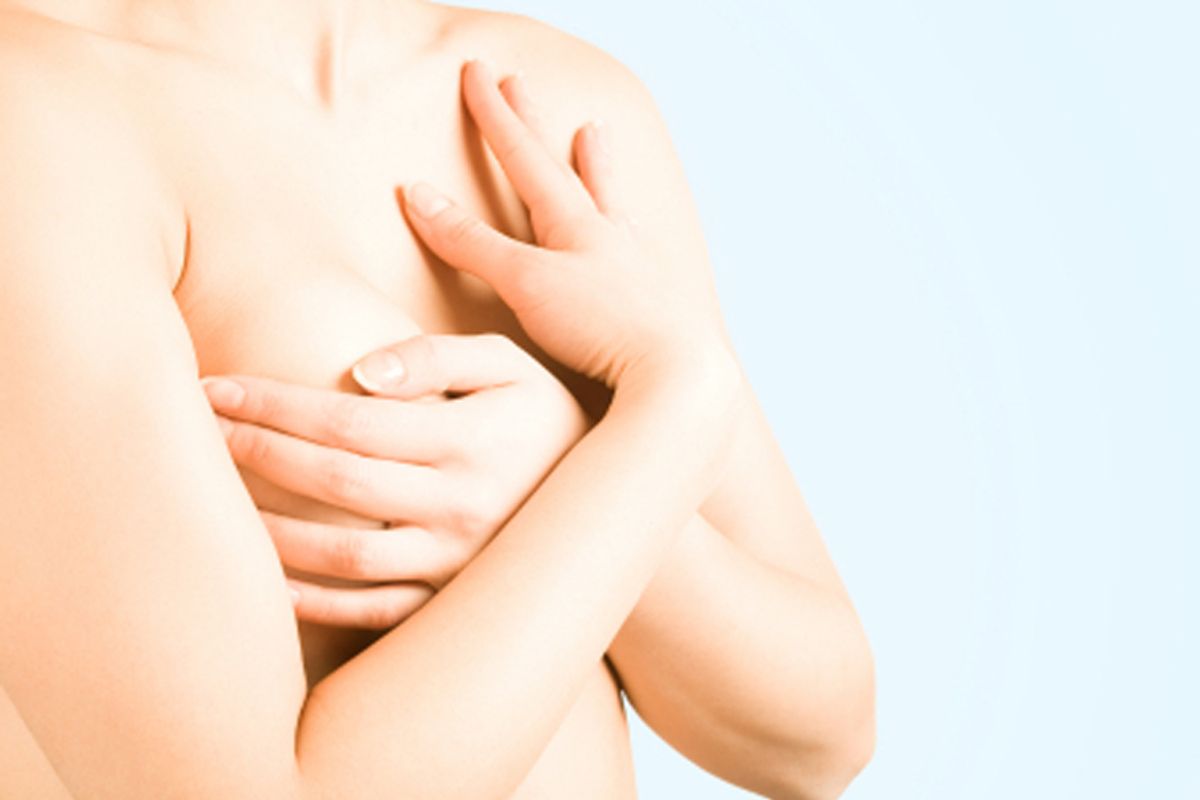A few nights ago, I felt up five women.
I'm a happily married 42-year-old woman with an 8-year-old son. So how did I end up inside the bathroom of a downtown brew pub with my face in all those knockers, the bare breasts of a group of women I'd just met, with our shirts up and bras hoisted? All the stroking and pressing and gazing might sound like fodder for Penthouse forum.
Actually, we're all breast cancer patients and survivors.
Last summer, I had a mastectomy. I finished chemotherapy two weeks ago. December and the beginning of the new year will be filled with holiday celebrations -- and daily radiation. Currently, my left breast is stuffed with a rigid, plastic, saline-filled chest-expander, a space holder for my future silicone implant. The surgical swap out will happen next summer, after radiation is completed, and my skin has healed for the requisite six months.
How I long for a breast with a little softness and droop to it. How I look forward to having a breast that you'd want to have some fun with, not something you try not to bonk into. I don't exactly love having one perky, overly firm, scarred, bolt-upright breast and one natural, low-slung, post-nursing breast that I can practically tuck into my jeans. But I'll take these mismatched breasts any day. I'm alive, and I'm thankful.
On Wednesday, I'm at a cocktail hour organized for local young women coping with breast cancer. I like being around women who know what this is like. We speak in shorthand. We cut to the chase. That night, we talk openly about each others' diagnoses and healthcare providers, we compare notes on our chemo days, what we wore on our bald heads, how breast cancer has affected our relationships and decisions around child-bearing.
We also talk about surgery scars, radiation burns, creams and potions to help repair the damage. We commiserate over the lack of sensation in our reconstructed breasts and nipples, about losing our eyelashes, about setting limits with our loved ones who are scared. The conversation flows steadily, energetically, as we sip beer, pear cocktails and sangria and eat fried potatoes with brava sauce. Along the way, the topic turns to nipple tattoos.
A nipple tattoo involves inking a fake nipple onto a post-mastectomy-breast, if the nipple was not spared or if, as in my case, it did not survive surgery. I'm very curious about nipple tattooing, so I begin to ask questions. How do they reconstruct a nipple? How well do the areola and nipple color match the healthy breast, if one still remains? One of the women offers to show me her nipple tattoos before we all head home. Sounds great.
Ten o'clock rolls around, and it is time for people to call it a night. Breast cancer patients and survivors try to practice moderation with regard to alcohol, though sometimes with more success than others. Alcohol can elevate estrogen production, which may lead to tumor growth or recurrence in those of us with estrogen-sensitive tumors. So tonight's crew has enjoyed two or three drinks apiece, though certainly we all would love to toss back a few more. We are the pictures of moderation and restraint.
The check is paid, the beautiful woman with the nipple tattoo says, "Let's go to the bathroom, and I'll show you my boobs." The other women all want to see them, too. No fools in this crowd. Plus, some have to pee. So off we all go: The divine secrets of the ta-ta sisterhood.
With all of us clustered together by the sinks, the woman yanks up her top and pulls down her bra. We all take in her perfect, enviable cleavage, and her tattooed areola and nipple. She offers to let us touch her reconstructed breast. I'm thrilled. Though I've had a lap dance, I've never actually laid my hands on a silicone implant. I'm dying to know what it will feel like. I'll soon have my own.
Quickly, the rest of us want to show and tell and cop a feel. Shirts are raised, bras lowered, and fingers, hands and eyes begin moving all over the smooth, the scarred, the lumpy, storied terrain of 12 breasts. The chatter is constant. You know how we girls are when we get in a bathroom together.
Just outside the restroom door, in a private party room, a reunion is in progress. The Class of '82 from a posh New England boarding school is busy reacquainting itself. What do those post-preps think as they come in to use the bathroom and find six women baring their racks? The contrast between "us” and “them” feels striking. Then again, considering that 1 in 8 women are diagnosed with breast cancer, chances are a few of those unintentional interlopers have stories of their own.
Though I have only just met my comrades in cancer, we feel safe with each other. We are young, vital women, who look in the mirror and see purple scars and disfigurement, in addition to vibrancy and bravery. We know what it feels like to wonder how our partners or prospective partners see us when our tops are off. And in a culture obsessed with perfect jugs, we understand being grateful for whatever was spared -- or can be rebuilt.
Laurie Hessen Pomeranz is a San Francisco-based marriage and family therapist and die-hard San Francisco Giants fan. She finished chemotherapy the day after the Giants won the World Series.



Shares